Manufacturer to Congress: Support the American Dream
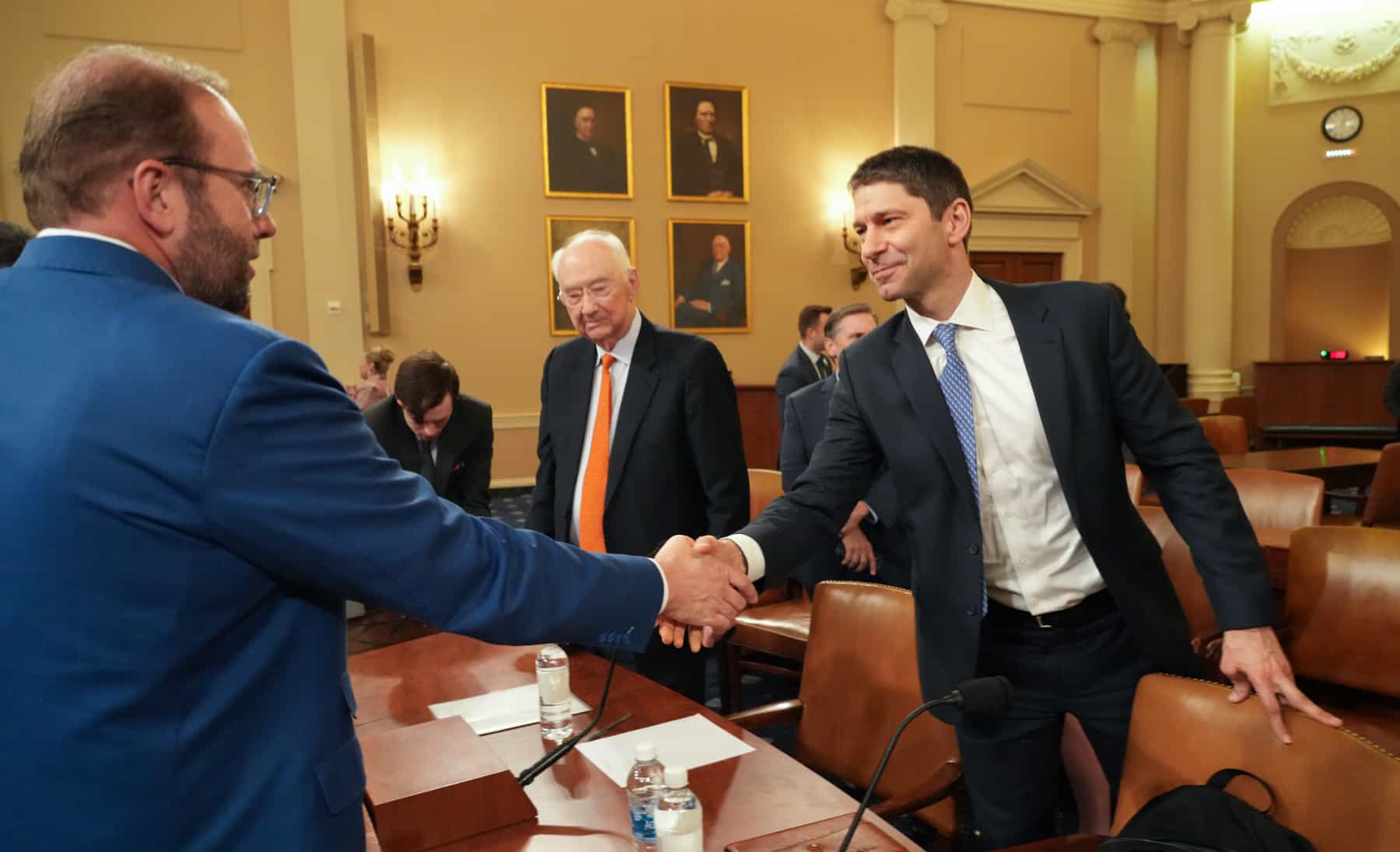
Austin Ramirez is living proof that the American dream still works—when the right policies are in place.
The president and CEO of family-owned Husco, a Waukesha, Wisconsin-based, hydraulic and electromechanical control systems manufacturer, told lawmakers Thursday that his family was able to found and expand a successful business in large part thanks to pro-growth tax policies.
All in the family: “My dad came to the states from Puerto Rico as a 6-year-old and grew up to earn a master’s in aerospace engineering and a Harvard M.B.A.,” Ramirez said at a hearing of the House Ways and Means Committee.
- “In short, our story is the embodiment of the American dream. But it was made possible by American reality—the laws that all of you write in this very room have a direct, concrete impact on our ability to succeed.”
Impact of expirations: The 2017 Tax Cuts and Jobs Act made it possible for manufacturers across the country to invest in new equipment, pay for renovations and expansions, hire much-needed workers and more. It was “unquestionably a success,” according to Ramirez.
- But the 2022 and 2023 expiration of three manufacturing-critical tax provisions in the legislation—immediate expensing for domestic research and development, enhanced interest deductibility and full expensing, which the NAM has been urging legislators to reinstate—has already hit Ramirez’s business, and hard.
- “Husco now has to amortize our R&D expenses, making it far more costly for us to design customized, proprietary products for our customers,” Ramirez went on. “Debt financing is now more expensive … [a]nd we can no longer immediately expense the full cost of our capital equipment purchases, forcing [us] to make smaller investments, spread out over many years.”
More tax increases coming: Ramirez also highlighted the TCJA provisions that are set to expire next year and the economic damage the expiration would cause.
- “At the end of 2025, individual tax rates will increase and individual tax brackets will decrease,” he said. “These changes mean that pass-through businesses like Husco will have more of our income subject to a higher rate of tax. At the same time, the pass-through deduction will expire completely, doubling down on the tax hikes that we face. … [A]llowing tax reform to sunset will undermine much of the progress we’ve made since 2017.”
What must happen: Ramirez thanked the committee for passing the Tax Relief for American Families and Workers Act—and reminded them of work still to be done.
- “Congress must act now to restore expired provisions—and be prepared to act in 2025 to forestall even more damaging tax increases. Only by preserving the Tax Cuts and Jobs Act can Congress ensure that uniquely America stories like Husco remain possible.”
Small Manufacturer: Industry Needs Tax Consistency
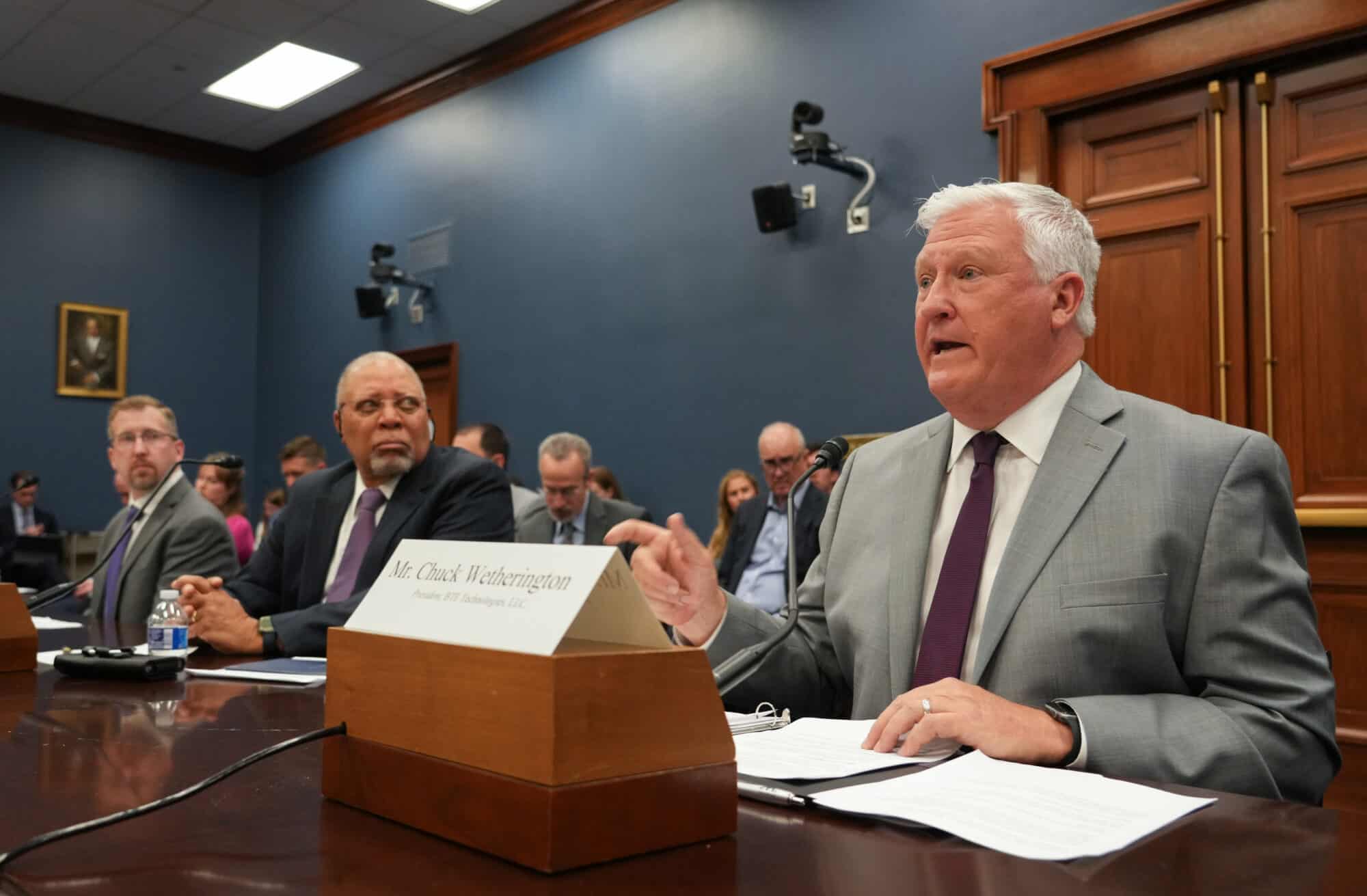
Small manufacturers need one thing from Congress, BTE Technologies President Chuck Wetherington told lawmakers on Wednesday: a consistent, pro-growth tax code.
What’s going on: Speaking at a hearing of the House Committee on Small Business, Wetherington told lawmakers how increased taxes and frequent changes to the tax code have harmed his company, a 40-employee medical device manufacturer in Hanover, Maryland.
- By passing the 2017 Tax Cuts and Jobs Act, “Congress was able to take a stale, outdated tax code and update key provisions to reduce taxes on small manufacturers,” Wetherington said. That legislation “drove a new wave of economic activity and industrial expansion. BTE, and many of our peers in the industry, experienced historic growth in the years between tax reform and the pandemic.”
- But the expiration in 2022 and 2023 of three crucial tax provisions—immediate expensing for domestic R&D, enhanced interest deductibility and full expensing, each of which the NAM is leading the charge to reinstate—is now hurting BTE and other businesses in its supply chain.
- And more tax hikes are on the horizon, with tax reform’s small business incentives—including the 20% pass-through deduction—set to expire at the end of 2025.
Less capital, fewer projects: “Bringing a medical device to market is extremely risky and takes years and millions of dollars of investment,” Wetherington continued. “But now, BTE cannot immediately expense those costs—reducing the working capital I have available to invest in my business and my employees … [and] delay[ing] projects to redesign and improve BTE’s flagship products.”
- As a direct result of the changes, BTE has had to put off expansions that would have allowed it to expand its workforce by 50%.
- And because most of BTE’s suppliers are pass-through businesses (entities in which profits pass through to the owner and are taxed at the individual rate), BTE will see even higher operating costs at the end of 2025, when tax rates are scheduled to increase and the pass-through deduction is set to expire.
What must be done—now: The Senate must pass the House-passed Tax Relief for American Families and Workers Act, which would reinstate the three expired provisions that are so critical to manufacturers. And Congress must commit to preventing the economic damage from the scheduled tax increases.
- “We deserve a tax code that promotes innovation and demonstrates to the rest of the world what our values will be for the next decade and beyond,” Wetherington said.
TSMC to Receive Up to $6.6 Billion in CHIPS Funding

The Biden administration on Monday announced that TSMC’s Arizona subsidiary will receive up to $6.6 billion in grants from the 2022 CHIPS and Science Act, The New York Times reports. The announcement is the latest move by the Biden administration to make the United States a leading producer of cutting-edge semiconductor technology.
What’s going on: The funding “will help support the construction of TSMC’s first major U.S. hub, in Phoenix. The company has already committed to building two plants at the site and will use some of the grant money to build a third factory in Phoenix, U.S. officials said on Sunday.”
- The company will “increase its total investments in the United States to more than $65 billion, up from $40 billion.”
- “TSMC’s investment is expected to create about 6,000 direct manufacturing jobs and more than 20,000 construction jobs, federal officials said.”
- In addition to the grants, the federal government is also offering TSMC up to $5 billion in loans.
Impact on U.S. chip production: “With projects such as TSMC’s, the U.S. is on track to make about 20% of the world’s cutting-edge chips by 2030, the Commerce Department said. It called the project the largest foreign direct investment in a new project in U.S. history,” reports The Wall Street Journal (subscription).
- Earlier this year, the Biden administration announced major chips funding awards for Intel and GlobalFoundries.
The NAM’s reaction: “Today’s announcement from TSMC and @CommerceGov makes America stronger,” the NAM wrote in a social post Monday. “The NAM-championed CHIPS and Science Act continues to spur new investments in cutting-edge semiconductor technology that is essential to advancing U.S. economic competitiveness.”
New NAM Ad: Senate Must Pass Tax Bill Now
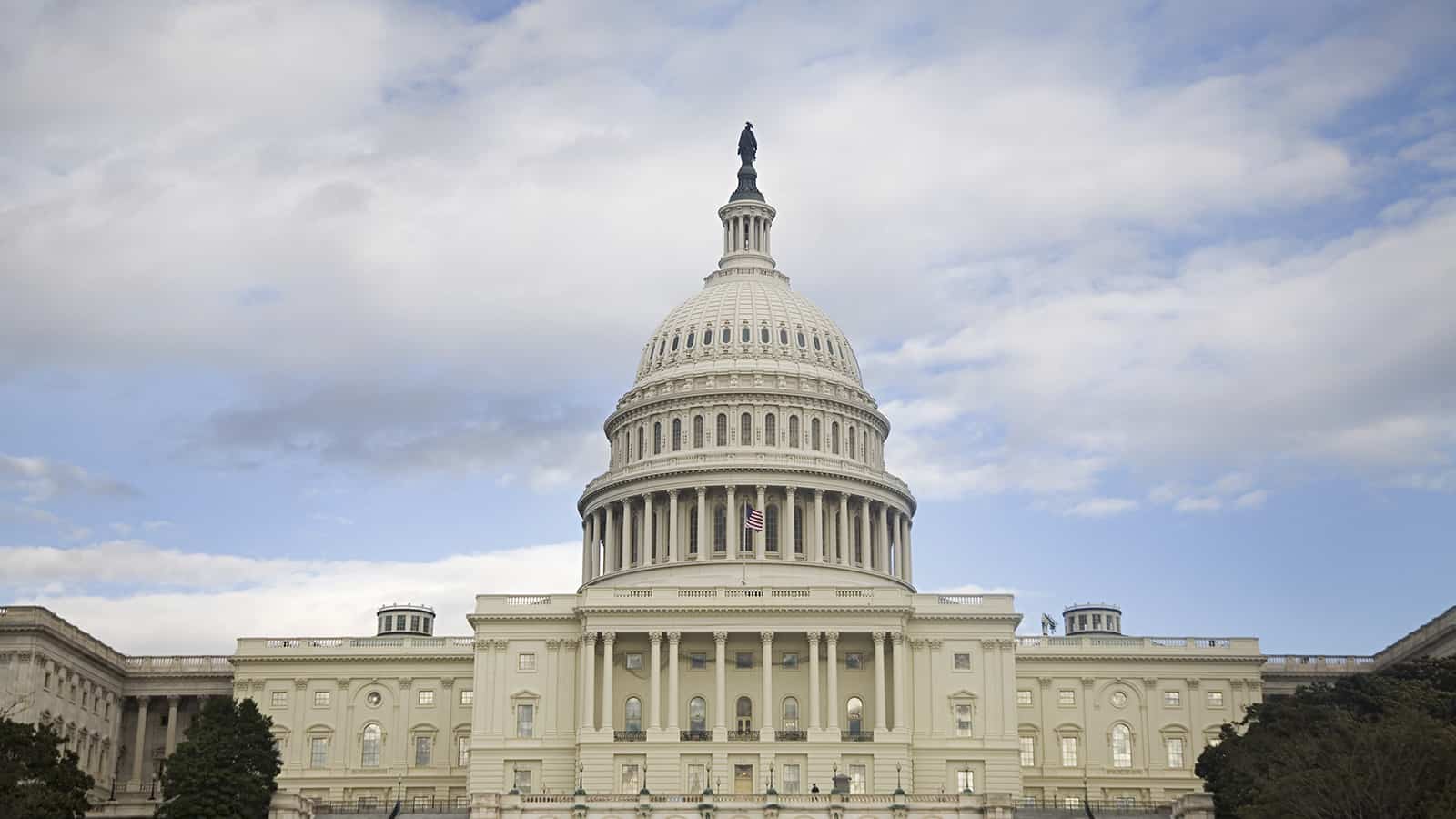
Earlier this year, the House passed legislation including key NAM tax priorities. Now it’s time for the Senate to do the same.
That’s the message of a new NAM digital ad campaign launched today and set to run over the next several weeks.
What’s going on: The 30-second TV ad—which will stream in Washington, D.C., and in the key states of Idaho, Kentucky, Louisiana, Oklahoma, New York and New Hampshire—asks viewers to urge the Senate to pass the Tax Relief for American Families and Workers Act, which cleared the House by a bipartisan vote in January.
- The legislation restores three key pro-growth tax provisions from the 2017 Tax Cuts and Jobs Act that expired in 2022: immediate expensing for domestic R&D, enhanced interest deductibility and full expensing.
The background: Earlier this month, Courtney Silver, president and owner of Ketchie and chair of the NAM Small and Medium Manufacturers Group, told the Senate Finance Committee about the impact the three provisions’ expiration has had on her family-owned precision machining company.
- “In the years following the TCJA, I was able to make a higher level of investment because I knew our tax code was going to have a baseline of certainty,” she said. “Today, however, I am unable to make these investments because of the uncertainty that Congress will address the expired TCJA provisions. . . . Because I am unable to realize the full deduction of my investment within the year I purchase it, the investment seems too risky and irresponsible.”
What’s needed: Senate Majority Leader Chuck Schumer (D-NY) has taken an early procedural step to put the House-passed legislation on the Senate’s calendar. But more needs to happen, and soon, the NAM’s ad tells viewers.
- “Vital tax provisions are expiring, harming our ability to compete globally and invest in new factories and equipment,” the ad says. “The House has done its job and restored these provisions with overwhelming support. The Senate needs to act now.”
Q&A: What You Need to Know on Tax Policy

Earlier this year, the House passed the Tax Relief for American Families and Workers Act, and the bill is now with the Senate to consider. NAM Vice President of Domestic Policy Charles Crain discusses what’s included in the bill, why the provisions matter to small and medium-sized manufacturers, other tax policies the NAM is focusing its advocacy efforts on and how SMMs can get involved.
Q: There is a major tax package moving through Congress. Can you explain what is included in the legislation?
Crain: “The Tax Relief for American Families and Workers Act includes three of the NAM’s top tax priorities: the ability to immediately deduct domestic R&D expenses, enhanced interest deductibility on business loans and the ability to fully deduct the cost of capital investments in the year acquired (full expensing). All three of these provisions were implemented by the 2017 Tax Cuts and Jobs Act.”
Q: What exactly are these provisions and why do they matter to SMMs?
Crain: R&D – “For almost 70 years, the U.S. tax code allowed businesses to fully deduct their R&D expenses in the same year they were incurred. But starting in 2022, businesses were required to deduct those expenses over a period of years, making it more costly to conduct R&D in the U.S.”
Interest Deductibility – “Many manufacturers need to borrow funds to finance long-term investments in equipment and facilities. The interest that businesses pay on these loans is generally tax deductible, subject to a cap. Prior to 2022, the cap was based on a company’s earnings before interest, tax, depreciation and amortization (EBITDA); now, it’s based on a company’s earnings before interest and tax (EBIT). Lowering the cap limits the amount of interest that companies can deduct—effectively imposing a tax hike on manufacturers that finance job-creating capital projects.”
Full Expensing – “Manufacturing is a capital-intensive industry. The TCJA allowed companies to immediately deduct 100% of the cost of equipment and machinery in the year purchased—called ‘full expensing.’ But full expensing began to phase out in 2023; it’s currently down to 60% and will be completely eliminated by 2027. That significantly increases the after-tax cost of capital equipment purchases.”
Q: Why is it important for Congress to restore these tax provisions for SMMs?
Crain: “These are provisions that manufacturers, especially SMMs, use to grow their businesses and compete globally. The tax code must be fair and consistent. The first step is addressing these crucial issues.”
Q: What other tax policies is the NAM focusing its advocacy efforts on?
Crain: “We are in the middle of a three-part story. If the TCJA was the first part of the trilogy, the second act is the Tax Relief for American Families and Workers Act—and the grand finale will come in 2025, when many other TCJA provisions expire. Changes that will impact SMMs at the end of 2025 include the expiration of the 20% pass-through deduction, increases in individual income tax rates and a reduction of the estate tax exemption threshold. Without congressional action, this would affect the laws in effect for tax year 2026 and beyond. For SMMs organized as corporations, the corporate tax rate could also be at risk. The NAM is already pushing back, and we know manufacturers are ready to pull out all the stops to prevent them from taking effect in 2026.”
Q: Where can SMMs find more information, and how can they get involved?
Crain: “The NAM has created online action centers for R&D, interest deductibility and full expensing with information on why these issues remain important. NAM members are encouraged to check out these action centers for tools and resources they can use to contact lawmakers on these issues. They need to hear from you! You can also reach out directly to NAM Senior Director of Tax Policy Alex Monié.”
Q: What else do SMMs need to know?
Crain: “There is an old saying in D.C.: ‘Tax bills are hard.’ We have gotten the Tax Relief for American Families and Workers Act through the House, but more work needs to be done in the Senate. And the next 20 months will be an all-out sprint to prevent damaging tax increases from taking effect at the end of 2025. The NAM was successful with the TCJA in 2017—and, I believe, will be successful both this year and next—thanks to our members. Your stories are absolutely crucial to showing that manufacturers kept our promises following tax reform’s passage—and illustrating the economic damage that will happen if R&D expensing, interest deductibility and full expensing aren’t revived this year, or if tax increases are allowed to hit SMMs in 2026. Please reach out to your membership adviser, or to Alex, to share any stories, feedback or ideas as we continue to advocate for pro-growth tax policies for manufacturers in America.”
U.S. Awards Intel Largest Chips Grant
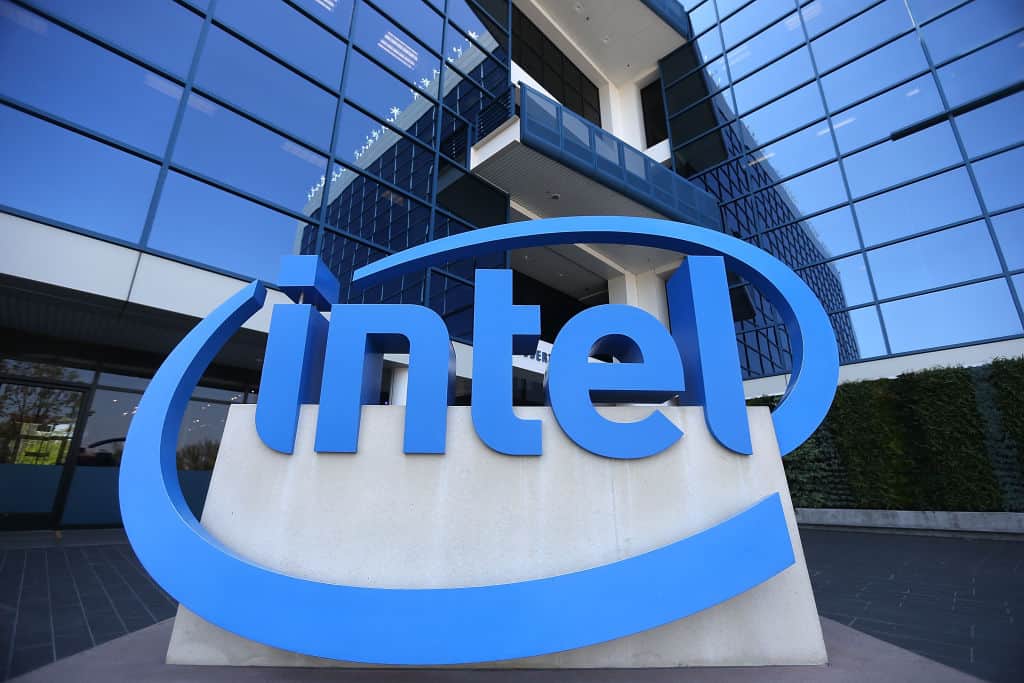
The U.S. will award Intel up to $8.5 billion in grants and as much as $11 billion in loans to expand chipmaking capacity and capabilities in four states, The Wall Street Journal (subscription) reports.
What’s going on: The funds, set aside under the NAM-backed 2022 CHIPS and Science Act to bolster domestic semiconductor production, “will go toward new factories and expansion projects in Arizona, New Mexico, Ohio and Oregon, the Commerce Department said.”
- Spurred by the federal funding, “Intel’s total investment in U.S. projects in the next five years is expected to exceed $100 billion,” according to the Journal, and to create more than 10,000 manufacturing jobs and about 20,000 construction jobs, according to the Commerce Department.
Largest award: The grant to Intel, the largest American chipmaker by revenue, is also the largest CHIPS Act award. It follows a February announcement of a $1.5 billion award to GlobalFoundries Inc.
- The award will support the reshoring of production of leading-edge logic chips, which are “essential to the world’s most advanced technologies like artificial intelligence,” the Commerce Department said.
- President Biden was in Chandler, Arizona, Wednesday to visit Intel’s Ocotillo chip-manufacturing campus.
Why it’s important: “We can’t just design chips; we have to make them in America,” Commerce Secretary Gina Raimondo told reporters on Tuesday, the Journal reports. “It’s an economic security problem. It’s a national security problem. And we’re going to change that.”
How it will work: The funding will be doled out in stages, “according to construction and manufacturing milestones,” the Journal said.
- “In Chandler, Arizona, the money will help to build two new chip plants and modernize an existing one,” CBS News reports. “The funding will establish two advanced plants in New Albany, Ohio, [and] … [t]he company will also turn two of its plants in Rio Rancho, New Mexico, into advanced packaging facilities. And Intel will also modernize facilities in Hillsboro, Oregon.”
The NAM weighs in: Wednesday’s “record, multibillion-dollar award is great news for [Intel] and U.S. manufacturing competitiveness,” the NAM wrote in a social post. “The NAM was a vocal supporter of the CHIPS and Science Act, and we will continue to champion policies that support the expansion of chip production in America.”
Manufacturers on Emissions Standards: Challenges Still Lie Ahead
Washington, D.C. – Following the Environmental Protection Agency’s release of new automobile emissions standards, National Association of Manufacturers President and CEO Jay Timmons released the following statement:
“Auto manufacturers in America make enormous investments to both improve the efficiency of their vehicles and provide numerous options for consumers. While it is clear the EPA listened to manufacturers’ concerns about the timeline of this rule, challenges still lie ahead. Successful implementation of this policy will still require congressional action on the permitting reforms needed to build the charging infrastructure to support this transition. That includes the ramping up of electricity production and developing a reliable domestic supply of critical minerals.
“Manufacturers will continue to engage with EPA Administrator Regan and President Biden as a more realistic standard is needed to harmonize this rule with other regulations governing vehicle emissions so that we can grow the sector in the United States.”
-NAM-
The National Association of Manufacturers is the largest manufacturing association in the United States, representing small and large manufacturers in every industrial sector and in all 50 states. Manufacturing employs nearly 13 million men and women, contributes $2.85 trillion to the U.S. economy annually and accounts for 53% of private-sector research and development. The NAM is the powerful voice of the manufacturing community and the leading advocate for a policy agenda that helps manufacturers compete in the global economy and create jobs across the United States. For more information about the NAM or to follow us on Twitter and Facebook, please visit www.nam.org.
Extend Pro-Growth Tax Policies, Small Manufacturer Tells Senate
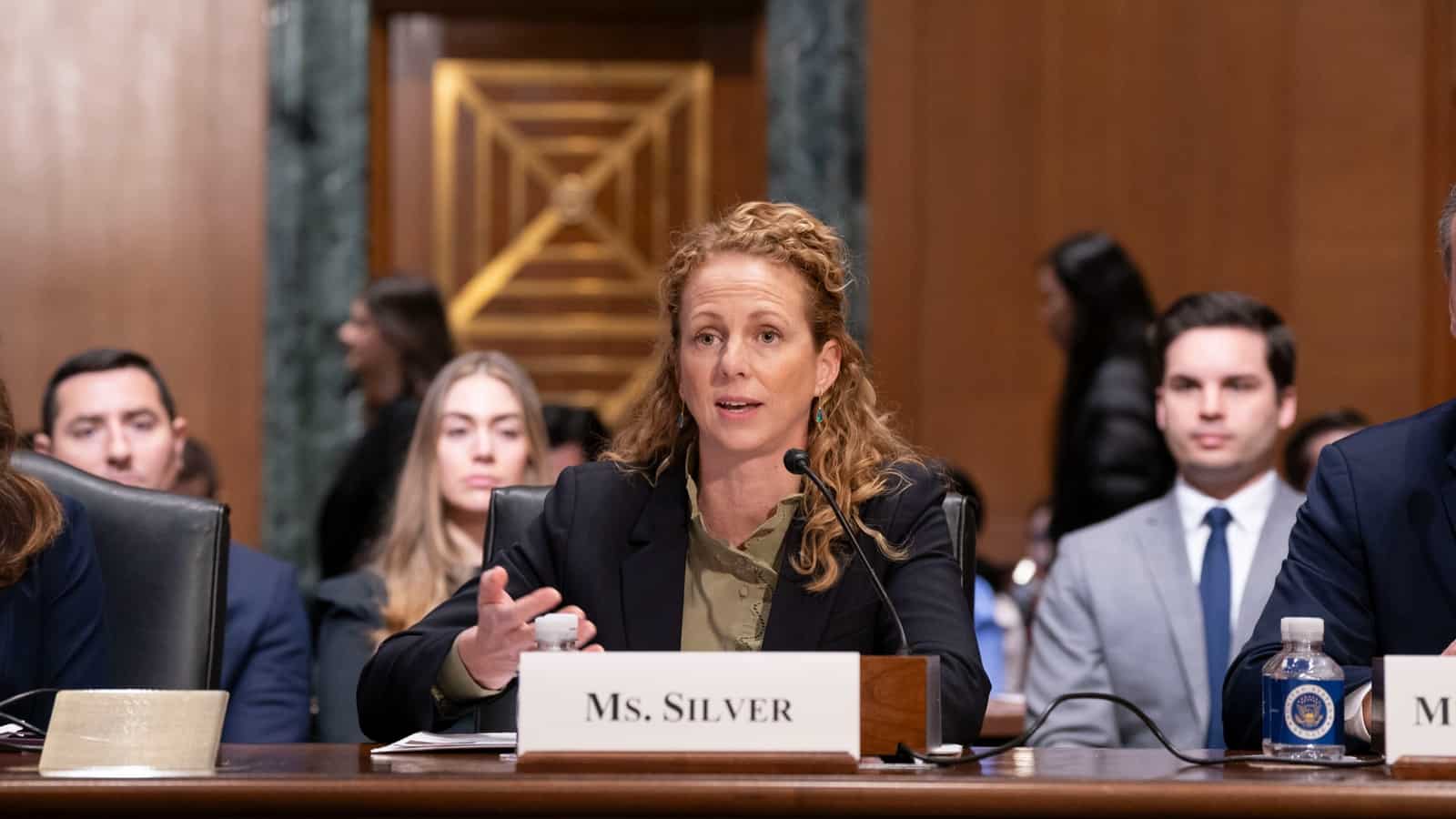
If manufacturing is a team sport, the rules of the game are the U.S. tax code—and to ensure a level playing field for everyone, that code must remain constant, Ketchie President and Owner and NAM Small and Medium Manufacturers Group Chair Courtney Silver told the Senate Finance Committee Tuesday.
The main way to do it, she said, is by restoring three key tax policies: immediate expensing for domestic R&D, enhanced interest deductibility and full expensing.
What’s going on: Thanks to the 2017 Tax Cuts and Jobs Act, Silver’s family-owned, North Carolina–based precision machining company and many other manufacturers were able to grow their companies, invest in workers and give back to their communities, Silver said in testimony during the “American Made: Growing U.S. Manufacturing Through the Tax Code” hearing.
- But two years ago, “the rules of the game began to change, making it more difficult for manufacturers to thrive in America,” she went on. “Crucial policies began to expire.”
Why it’s important: If Congress does not act soon, additional pro-growth tax cuts will expire, further harming manufacturing in the U.S.
- And “more tax increases are on the way,” Silver told committee members, referring to the additional TCJA provisions scheduled to expire next year. “Other critical provisions expire at the end of 2025, which will have a direct impact on the manufacturing sector. Ketchie will be directly harmed by the loss of the pass-through deduction, the increases in our tax rates and the reduced protection from the estate tax.”
Unstoppable combination: The 2017 tax reforms, “paired with pro-growth policies like immediate expensing of capital investments, drove historic growth in the manufacturing sector,” Senate Finance Committee Ranking Member Mike Crapo (R-ID) said during the hearing, citing NAM data on the significant, positive impact of the cuts.
- Indeed, “Ketchie might not be here today if we did not have the economic boom caused by tax reform in the years prior to the pandemic,” said Silver, who called immediate expensing for domestic R&D expensing, enhanced interest deductibility and full expensing “a game-changer for the manufacturing industry.”
Team players: Congress must restore these three provisions and other critical provisions that are set to expire next year.
- “Manufacturing truly is a team sport, and you are all on that team,” Silver told the committee. “Small companies like mine are counting on you to play with us rather than against us, and to ensure that our tax code does the same.”
- The NAM has called on the Senate to advance the House-passed Tax Relief for American Families and Workers Act, which would restore the three key tax policies.
Manufacturing Front and Center in State of the Union Address
But Biden Misses Marks with Attack on Sector
Washington, D.C. – Following President Biden’s State of the Union address, National Association of Manufacturers President and CEO Jay Timmons released the following statement:
“Tonight, President Biden celebrated manufacturing’s accomplishments during his presidency, and rightly so. He signed into law some of the most consequential pro-manufacturing legislation in recent years—the Bipartisan Infrastructure Law, the CHIPS and Science Act and even key provisions of the Inflation Reduction Act. What’s more, manufacturers have stood proudly with him in his efforts to champion democracy abroad, most notably in Ukraine, and to reach solutions to address our broken immigration system. These are urgent priorities on which Congress should heed his call and act swiftly.
“But President Biden missed the mark tonight in several key areas when he laid out his plans going forward. If the cost of manufacturing in America is driven up by his agencies’ continued regulatory onslaught and a successful push to raise taxes, investment will be driven overseas and Americans will be driven out of work. If his campaign to ‘march-in’ to manufacturers and seize their intellectual property advances, it will rob Americans and the world of future cures and chill research into new breakthroughs across the manufacturing industry. And if President Biden continues to heap blame on pharmaceutical manufacturers, rather than reining in pharmacy benefit managers with cost-saving reforms, Americans and their employers will continue to endure rising health care costs.
“President Biden and Congress have a choice to make: they can take bipartisan action on the priorities manufacturers have outlined in our ‘Competing to Win’ agenda, an agenda that will unquestionably lift the quality of life for all Americans, or they can retreat to partisan corners and put our future in jeopardy.
“The president spoke passionately tonight about protecting democracy and our way of life at home and around the world. Manufacturers share a profound commitment to democracy and to the values that have made America exceptional and keep manufacturing strong—free enterprise, competitiveness, individual liberty and equal opportunity. And one of the surest ways to restore faith in democracy is for both parties to work together and prove that this experiment still works—by delivering smart policies for the American people and by bolstering the industry that is the backbone of our economy and improves lives for all.”
-NAM-
The National Association of Manufacturers is the largest manufacturing association in the United States, representing small and large manufacturers in every industrial sector and in all 50 states. Manufacturing employs nearly 13 million men and women, contributes $2.85 trillion to the U.S. economy annually and accounts for 53% of private-sector research and development. The NAM is the powerful voice of the manufacturing community and the leading advocate for a policy agenda that helps manufacturers compete in the global economy and create jobs across the United States. For more information about the NAM or to follow us on Twitter and Facebook, please visit www.nam.org.
Regulatory Onslaught and Inaction on Key Manufacturing Priorities Weigh on Industry Ahead of State of the Union Address
Nearly 94% of respondents believe federal tax code should promote R&D, capital and equipment expenditures
Washington, D.C. – The National Association of Manufacturers released its Manufacturers’ Outlook Survey for the first quarter of 2024, which reveals that the expiration of federal tax incentives related to R&D, interest deductibility and expensing for capital investments has already caused nearly 40% of respondents to pull back on hiring and investing due to increased taxes.
“Manufacturers’ concerns in this survey should provide a stark warning to both parties ahead of the State of the Union: If you want to continue America’s manufacturing resurgence, focus on constructive policies to strengthen our industry—reinstating key tax provisions, achieving immigration solutions and advancing permitting reform. But if President Biden wants to put his manufacturing legacy at risk, nothing will do that faster than raising taxes on manufacturers or continuing this regulatory onslaught,” said NAM President and CEO Jay Timmons.
The latest data show that two-thirds (65.5%) of manufacturers said that rules coming from the Biden administration will be costly to implement. Additionally, amid the regulatory onslaught, concern about the overall business climate was elevated and not far from levels last seen at the end of 2016.
“President Biden and Sen. Britt will opine on their parties’ respective priorities, many of which manufacturers share. But actions speak louder than words. Congressional inaction and the stream of senseless regulations from the EPA and elsewhere are creating greater uncertainty for businesses, which hurts manufacturers’ ability to create jobs and raise wages. All of this is undermining manufacturers’ confidence and has the potential to drive investment away from the United States,” added Timmons. “Our commitment is to work with anyone who will put policy—policy that supports people—ahead of politics, personality or process.”
Overall, 68.7% of respondents felt either somewhat or very positive about their company’s outlook, edging up slightly from 66.2% in the fourth quarter. It was the sixth straight reading below the historical average of 74.8%.
Key Survey Findings:
- Nearly 94% of respondents say that it is important for the federal tax code to help reduce manufacturers’ costs for conducting R&D, accessing capital via business loans and investing in capital equipment purchases, with 58% saying that it is very important.
- The majority of respondents (72.4%) said that the length and complexity of the current permitting reform process affects their investment decisions in various degrees, with 38.9% suggesting that they were extremely or moderately impacted. In survey responses throughout 2023, manufacturers stated that reform to the current system could allow them to hire more workers, expand their business and increase wages and benefits.
- More than 65% of manufacturers cited the inability to attract and retain employees as their top primary challenge.
- An unfavorable business climate (58.9%), rising health care and insurance costs (58.2%) and weaker domestic economy and sales for manufactured products (53.2%) are also impacting manufacturing optimism.
You can learn more at the NAM’s online tax action center here.
The NAM releases these results to the public each quarter. Further information on the survey is available here.
-NAM-
The National Association of Manufacturers is the largest manufacturing association in the United States, representing small and large manufacturers in every industrial sector and in all 50 states. Manufacturing employs nearly 13 million men and women, contributes $2.85 trillion to the U.S. economy annually and accounts for 53% of private-sector research and development. The NAM is the powerful voice of the manufacturing community and the leading advocate for a policy agenda that helps manufacturers compete in the global economy and create jobs across the United States. For more information about the NAM or to follow us on Twitter and Facebook, please visit www.nam.org.
